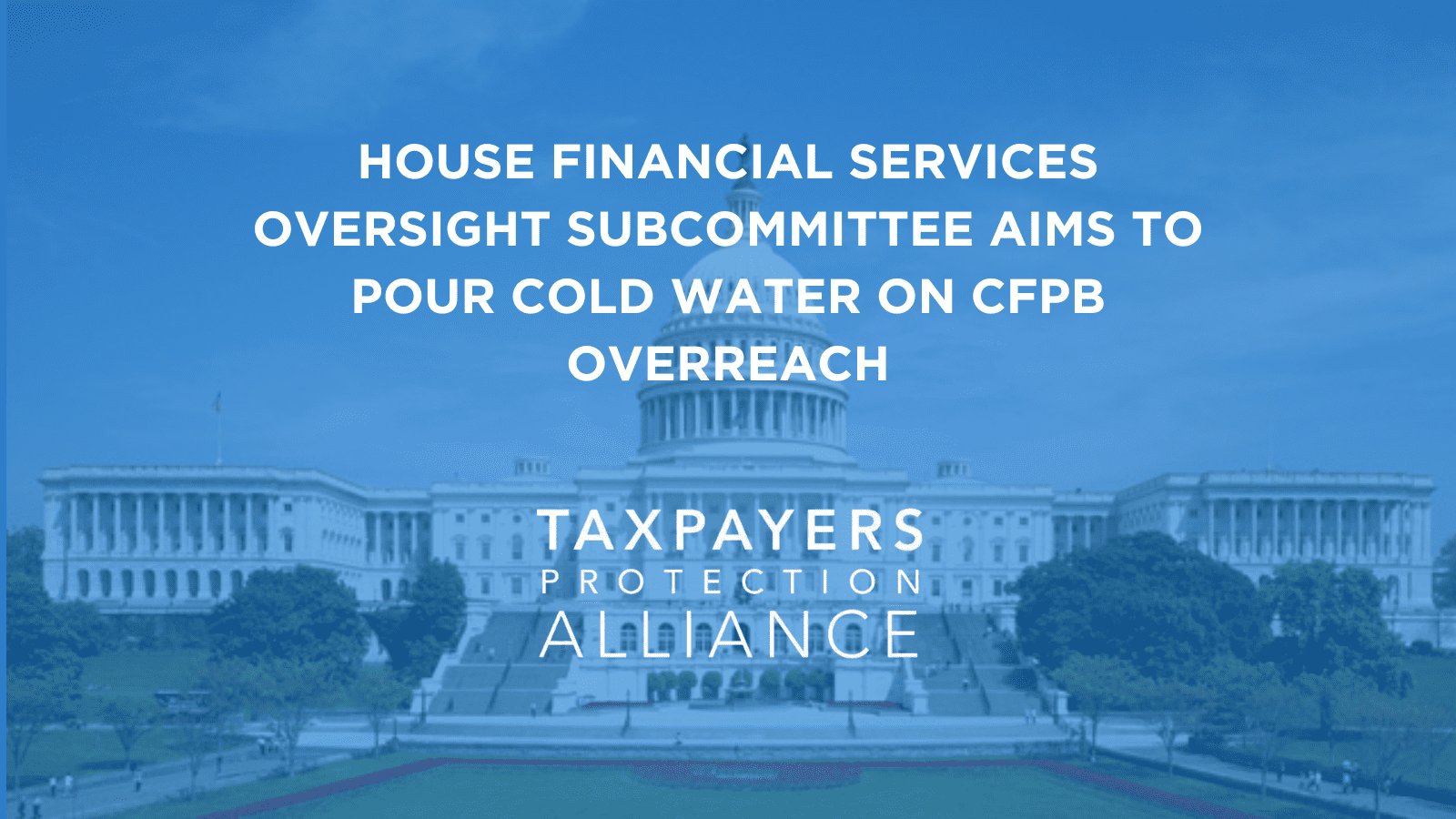
House Financial Services Oversight Subcommittee Aims to Pour Cold Water on CFPB Overreach
Taxpayers Protection Alliance
June 24, 2025
A striking example of institutional failure occurred in 2023 when a Consumer Financial Protection Bureau (CFPB) employee transmitted the personal information of more than 250,000 Americans to his personal email account. Although the agency terminated the employee responsible for this breach, the incident exemplifies a broader pattern, illuminating fundamental dysfunctions in the CFPB’s operational framework and accountability mechanisms.
The CFPB, established under the Dodd-Frank Act of 2010 to safeguard American consumers from predatory financial practices, has on net harmed American business and undermined the very constituency it was designed to protect. Recognizing these failures, the House Financial Services Subcommittee on Oversight and Investigations has scheduled a hearing on Thursday, June 26 to further examine the agency’s “misadventures.”
The CFPB’s regulatory overreach reached unprecedented levels during the Biden administration under Director Rohit Chopra, whose leadership was characterized by controversial enforcement actions and expansive interpretations of the agency’s authority. These issues reflect institutional problems rather than mere leadership deficiencies, issues which manifested as regulatory policies harmful to the vulnerable populations the CFPB seeks to serve. This pattern of counterproductive regulation was instantiated in the agency’s 2013 lending regulations, which effectively restricted credit access for borrowers with imperfect credit histories, while mandating extensive financial disclosure requirements that compelled lenders to collect and transmit detailed personal financial data to federal authorities.
These failures stem directly from the CFPB’s unique and problematic structure. Unlike other independent regulatory agencies that receive funding through congressional appropriation, the CFPB is self-funded via the Federal Reserve. The agency is also led by one director (appointed by the President) who has wide discretion to enforce policy. This is in stark contrast to other regulatory agencies, which are comprised of bipartisan commissions, which vote on items.
This funding structure creates a critical accountability gap. Without congressional oversight, the CFPB is allowed to freely operate without any accountability to ensure that the agency does not violate its authority or go beyond its given legal territory. The consequences of this structural deficiency became evident when the American Bankers Association and the U.S. Chamber of Commerce filed suit against the CFPB and Chopra in 2022, alleging violations of the agency’s statutory authority. This legal challenge illustrates that the absence of traditional fiscal mechanisms has enabled the CFPB to exceed its congressionally defined boundaries.
The CFPB’s overreaches have damaged Americans’ interests in two especially notable ways: The agency has issued burdensome regulations that harm small financial institutions serving vulnerable communities and has threatened Americans’ privacy with inadequate data-security protections for consumer information. Rather than protecting consumers, the CFPB’s excessive regulatory requirements have made it increasingly difficult for community banks and credit unions to operate in low-income and underserved areas.
By targeting certain areas within the financial-services sector it deems high-risk, the CFPB has created regulatory complexity that small institutions cannot easily navigate. This effectively drives them out of markets where large banks refuse to operate. This regulatory approach undermines the goal of expanding access to financial services by eliminating the very institutions willing to serve underbanked populations. The agency’s poor stewardship extends beyond regulatory overreach to basic operational failures, as demonstrated by the 2023 data breach that compromised over 250,000 Americans’ personal information — a direct result of inadequate internal controls and accountability structures.
The statutory structure of the CFPB has made the agency ripe for government waste, fraud, and abuse by insulating it from conventional methods of oversight to which similar agencies are subject. The Trump administration’s firing of Chopra and the substantial reduction in the CFPB’s operations is a great start to ensuring that the CFPB cannot further harm American consumers and businesses.
